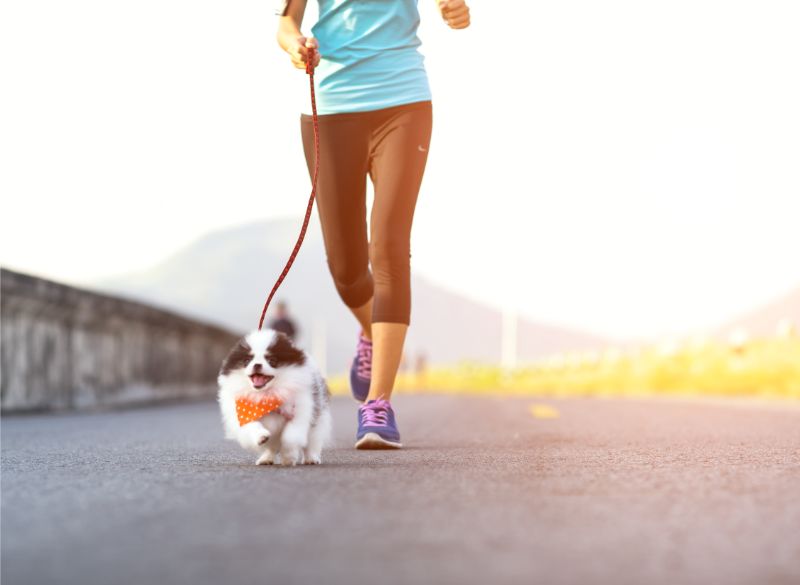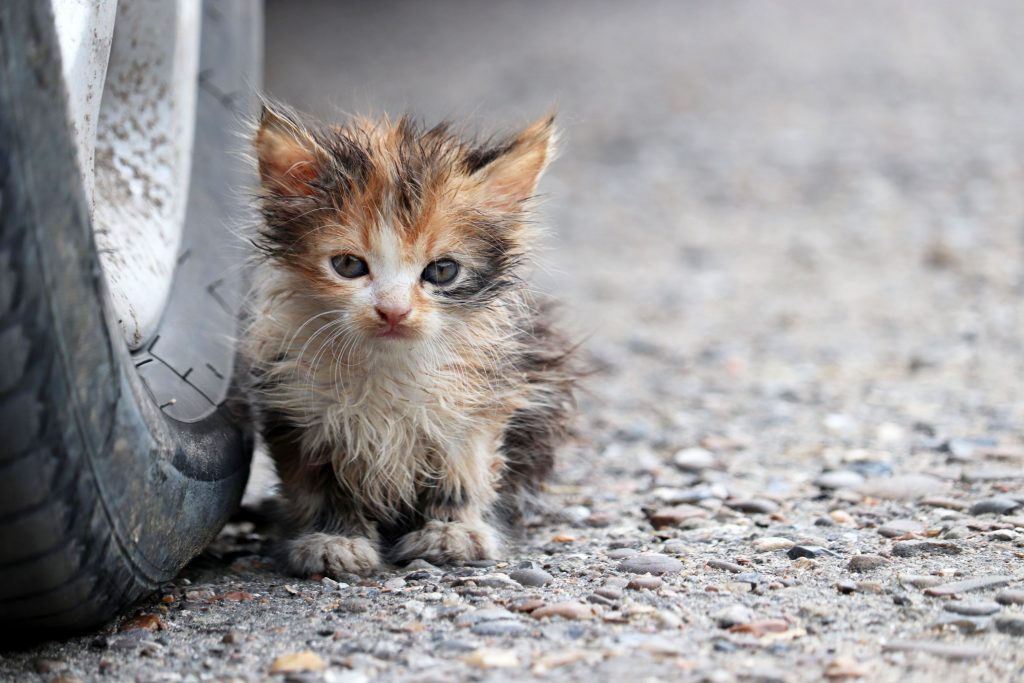Search Results for ‘heartworm’
Pet Wellness: Why Heartworm Prevention Matters
Heartworm disease is something most pet owners know about, but may only have a vague understanding of, overall. Public education on heartworm disease is lacking, and many pet owners are unaware that it is one of the deadliest diseases threatening our dogs and cats.
What Is Heartworm Disease?
Heartworm disease is caused by a parasitic worm, Dirofilaria immitis, which is transmitted via mosquito. Mosquitoes pick up heartworm from feeding on an infected animal. Dogs, cats, coyotes, wolves, raccoons, opossums, and other mammals can be infected with heartworm.
Continue…Heartworm Disease in Pets: Prevention is Key
 In both human and veterinary medicine, we are faced with many illnesses that are outside the realm of our control. Despite our best efforts, some pets may develop one of those unpreventable disease. However, there are some illnesses that we can protect our pets from; heartworm disease is one of those that, with a little work and persistence, we can knock off the list!
In both human and veterinary medicine, we are faced with many illnesses that are outside the realm of our control. Despite our best efforts, some pets may develop one of those unpreventable disease. However, there are some illnesses that we can protect our pets from; heartworm disease is one of those that, with a little work and persistence, we can knock off the list!
What is Heartworm Disease?
Heartworm disease is a serious illness that we see too frequently in Tennessee. Heartworm disease is caused by the parasitic worm, Dirofilaria immitis; this parasite is transmitted from an infected animal to others through mosquito bite. It only takes one mosquito bite to transmit heartworm disease to your pet. Continue…
Outdoor Pet Safety In The Wilds of Tennessee
While rambling along a trail towards Clingmans Dome or hiking near Paint Rock, it’s easy to immerse yourself in the scenic wonder of our state. But knowing what is in store for you and your dog while on an outing is paramount for a great time as well as a safe return for both of you.
Before exploring, do a bit of research about the different types of wildlife, terrain, and weather hazards in your area. Although it may seem a bit preconceived and to spoil the surprise of discovery, it can actually reinforce the strength and impact of the experience.
Before venturing out on your next adventure, take a moment to ingrain some of these very important outdoor pet safety tips and tricks, and keep your pup safe while you’re both immersed in the great Tennessee wilderness and Smoky Mountains National Park.
Continue…What to Worry About: Considering Spring Pet Safety
Spring is about embracing life-affirming positivity, joy, and abundance. The sun is shining, the flowers are blooming, and nothing can get us down. It’s the best time of the year to pivot towards health, vitality, and a happy, full future. Chances are, your pet has a keen sense for clocking the vibe shift between winter and spring. They can feel the potential, just like us. Unfortunately, that means they can come across less-than-ideal situations that threaten your approach to spring pet safety.
Continue…Pet Wellness Tips for 2023
The new year is the time for new beginnings, and while you’re making a list of New Year’s resolutions, make sure you include ways to enrich the lives of your pets as well.
At Volunteer Veterinary Hospital, we want to help you make 2023 your pet’s healthiest and happiest year yet. Here are our team’s top wellness tips for the new year.
Continue…Have You Heard Of Hyperthyroidism in Cats?
Cat owners are typically looped into the common potential health issues facing modern felines. In addition to heartworm disease, diabetes, feline leukemia virus (FelV), and feline immunodeficiency virus (FIV), hyperthyroidism in cats is increasingly prevalent. Characterized by weight loss, increased appetite/thirst, and vomiting or diarrhea, this condition must be promptly addressed. The good news is that once hyperthyroidism in cats is properly managed, a high quality of life is attainable.
Anatomy Details
Located within the neck, the thyroid gland produces a hormone that regulates metabolism. When too much hormone is produced, metabolism increases which explains why cats lose weight despite a voracious appetite. While this symptom is a red flag, many owners don’t automatically realize that it’s tied to something serious.
Cats between the ages of 10-13 are commonly diagnosed with hyperthyroidism. Blood tests and other diagnostics can help diagnose hyperthyroidism in cats, and rule out a series of other common conditions like kidney disease, diabetes, and cancer (all share similar clinical symptoms). We may also need to perform an electrocardiogram, chest x-ray, ultrasound, and blood pressure to gain a better understanding of a cat’s condition.
Since a vast majority of cases are linked to a benign tumor on one or both lobes of the thyroid gland, it is critical to move quickly toward effective treatment. Prognosis is usually very good if caught early.
Next Steps
Depending on the severity, hyperthyroidism in cats may be properly managed with medical treatment, close monitoring, and prescription diet. Medication taken twice a day for life can decrease the production of thyroid hormone.
Injections of radioactive iodine can also decrease thyroid hormone levels in a shorter amount of time, but require a hospital stay. This is often the fastest and safest method to lower thyroid hormone levels.
Surgical removal of the thyroid gland may be necessary in extreme cases. However, the elimination of the thyroid gland may result in serious health complications.
Every Step of the Way
Your team at Volunteer Veterinary Hospital understands that hyperthyroidism in cats can be very challenging to face. Due to its effect on feline blood pressure, heart health, eye health, neurologic functions, and the kidneys, this condition must be closely observed. If we’re able to catch the disease early on, hyperthyroidism in cats can be effectively treated.
Hyperthyroidism in Cats
Your cat’s annual wellness exam creates the opportunity to catch health problems before they get out of hand. Early detection can lead to a better prognosis, affecting your cat’s overall health and lifespan.
Remember, if you see any changes to your cat’s eating/drinking behavior, vomiting and/or diarrhea, poor coat quality, and weight loss, please don’t hesitate to call us at (865) 609‑0311.
Tips for First Time Pet Owners
Pets bring endless amounts of unconditional love and joy, which makes it hard to resist bringing one into your home. They can also bring some unpredictable situations, however, that require a certain amount of preparation. Your friends at Volunteer Veterinary Hospital are here to give you some tips on first time pet ownership so you can enjoy a long and happy life together:
Continue…How to Do Your Part to Prevent Zoonotic Diseases in Pets
Zoonotic diseases have been a growing concern for both humans and animals. We have heard a lot recently about these diseases that are transmitted from wildlife to people and pets. There is currently much more of a spotlight on diseases, particularly viruses, that mutate and affect other species.
This is why the team at Volunteer Veterinary Hospital is here with some insight into how to protect everyone from these serious diseases.
Continue…Start Scratching! Recognizing Seasonal Allergies in Pets

Has your pet been unusually itchy lately, pawing on their face or constantly scratching? They may be dealing with allergies. While many of us deal with the usual spring sneeze-fest, seasonal allergies in pets may manifest in ways that pet owners may not assign to allergies.
Let’s take a closer look at pet allergies, their symptoms, and how we can work together to relieve the discomfort for your fur friend.
Seasonal Allergies in Pets
Seasonal allergies are also called environmental allergies, atopy, and airborne allergies. An allergy is an overreaction to an allergen, which can include those that are present in the air or environment.
Continue…Running With Your Dog

When it comes to enjoying the outdoors, getting in a great workout, and bonding with your furry friend, running with your dog can’t be beat. Besides the many health benefits of regular exercise for pets, running provides an outlet for excess energy, reduces boredom and negative behaviors, and strengthens the bond you share.
In case you haven’t noticed, your pet’s safety is one of our top priorities at Volunteer Veterinary Hospital. We want to share some simple do’s and don’ts when it comes to running with your dog.
But First…
- Come see us. Before beginning any exercise program, schedule a wellness exam with your veterinarian. We’ll make sure your best pal is healthy enough for running and is up-to-date on important vaccines and parasite protection.
- Brush up on obedience. A good grasp of basic obedience commands is essential for your dog’s safety. Dogs who run with their owners should be able to heel, not pull at the leash, and respond to basic commands, such as “come” or “drop it.”
- Get in gear. A sturdy, 4-6 foot leash, a harness with a back clip, and a few plastic baggies for doggie waste are all you need before hitting the trail with your pet. Stay away from retractable leashes, as these can be extremely dangerous and offer little control.
Tips for Running With Your Dog
Consider these tips to ensure running with your dog is a successful experience:
- Start slowly – You wouldn’t go from a couch potato to running 10 miles overnight, so don’t expect your dog to do the same. Work up to longer distances slowly with your pet. Additionally, don’t skip the warm-up period anytime you run with your dog – a few minutes of brisk walking or slow jogging is sufficient to get the blood moving and muscles warmed up.
- Be observant – Always pay close attention to your dog’s body language and watch for signs of overexertion or heat exhaustion, such as excessive panting, drooling, stumbling, or slowing down/stopping. Never force your dog to run if they don’t want to.
- Watch the heat – Dogs aren’t able to regulate body temperature as efficiently as humans, meaning that heat stroke or heat exhaustion can come on quickly. Running during the early morning or evening hours is best during warmer months.
- Paw protection – A dog’s paw pads are tough, but they’re no match for hot pavement or asphalt, rocks, sticks, or glass. Whenever possible, choose a softer running surface, such as a trail or grass, and be on the lookout for any debris that could injure your dog’s paws.
We applaud you for giving your dog the joy and health benefits of running! Please let us know if you need more information or would like to schedule an appointment for your pup.








